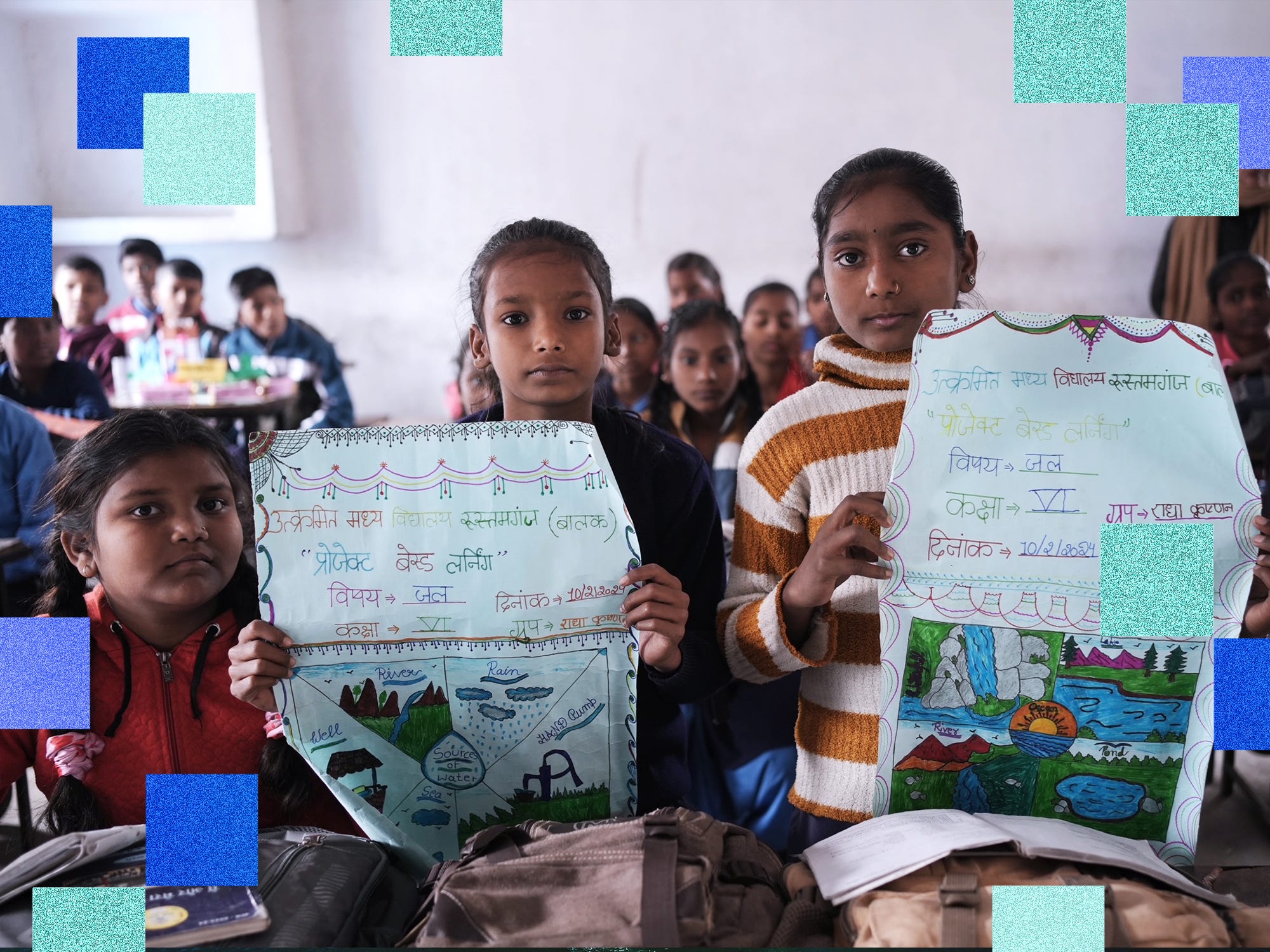
Courtesy of Education Above All Foundation; Alyssa Powell/ BI
As millions of young people worldwide increasingly rely on AI chatbots to acquire knowledge as part of their learning — and even complete assignments for them — one organization is concerned that those in developing countries without access to the tech could be put at an unfair disadvantage.
And it’s using the very technology it believes is causing this problem to fix it.
Education Above All, a nonprofit based in Qatar, believes that because most of the world’s popular AI chatbots are created in Silicon Valley, they aren’t equipped to understand the linguistic and ethnic nuances of non-English-speaking countries, creating education inequities on a global scale. But its team sees AI as a way to tackle this problem.
In January 2025, the charity teamed up with MIT, Harvard, and the United Nations Development Programme to introduce a free and open-source AI literacy program called Digi-Wise. Delivered in partnership with educators in the developing world, it encourages children to spot AI-fueled misinformation, use AI tools responsibly in the classroom, and even develop their own AI tools from scratch.
As part of this, the charity has developed its own generative AI chatbot called Ferby. It allows users to access and personalize educational resources from the Internet-Free Education Resource Bank, an online library containing hundreds of free and open-source learning materials.
Education Above All said it’s already being used by over 5 million Indian children to access “project-based learning” in partnership with Indian nonprofit Mantra4Change. More recently, Education Above All has embedded Ferby into edtech platform SwiftChat, which is used by 124 million students and teachers across India.
“Ferby curates, customizes, and creates learning materials to fit local realities, so a teacher in rural Malawi can run the right science experiment as easily as a teacher in downtown Doha,” said Aishwarya Shetty, an education specialist at Education Above All. “By marrying offline ingenuity with AI convenience, we make learning local, low-resource, and always within reach, yet at scale.”
Education Above All is among a group of organizations using AI to tackle global inequality and work toward realizing the United Nations Sustainable Development Goals. Created in 2015, the UN SDGs comprise 17 social, economic, and environmental targets that serve as guidelines for nations, businesses, and individuals to follow to help achieve a more peaceful and prosperous world. Education Above All’s projects fall under SDG 4: inclusive and equitable education.
A global effort
A range of other organizations are using AI to augment and enhance their education programming.
Tech To The Rescue, a global nonprofit that connects charities with pro-bono software development teams to meet their goals, is another organization using AI in support of the UN SDGs. Last year, it launched a three-year AI-for-good accelerator program to help NGOs meet the various UN SDGs using AI.
One organization to benefit from the program is Mercy Corps, a humanitarian group that works across over 40 countries to tackle crises like poverty, the climate crisis, natural disasters, and violence. Through the accelerator, it created an AI strategy tool that helps first responders predict disasters and coordinate resources. The World Institute on Disability AI also participated in the accelerator program, creating a resource-matching system that helps organizations allocate support to people with disabilities in hours rather than weeks.
Similarly, the International Telecommunication Union — the United Nations’ digital technology agency, and one of its oldest arms — is supporting organizations using technology to achieve the UN SDGs through its AI for Good Innovation Factory startup competition. For example, an Indian applicant — a startup called Bioniks — has enabled a teenager to reclaim the ability to do simple tasks like writing and getting dressed through the use of AI-powered prosthetics.
Challenges to consider
While AI may prove to be a powerful tool for achieving the UN SDGs, it comes with notable risks. Again, as AI models are largely developed by American tech giants in an industry already constrained by gender and racial inequality, unconscious bias is a major flaw of AI systems.
To address this, Shetty said layered prompts for non-English users, human review of underlying AI datasets, and the creation of indigenous chatbots are paramount to achieving Education Above All’s goals.
AI models are also power-intensive, making them largely inaccessible to the populations of developing countries. That’s why Shetty urges AI companies to provide their solutions via less tech-heavy methods, like SMS, and to offer offline features so users can still access AI resources when their internet connections drop. Open-source, free-of-charge subscriptions can help, too, she added.
AI as a source for good
Challenges aside, Shetty is confident that AI can be a force for good over the next few years, particularly around education. She told BI, “We are truly energized by how the global education community is leveraging AI in education: WhatsApp-based math tutors reaching off-grid learners; algorithms that optimize teacher deployment in shortage areas; personalized content engines that democratize education; chatbots that offer psychosocial support in crisis zones and more.”
But Shetty is clear that AI should augment, rather than displace, human educators. And she said the technology should only be used if it can solve challenges faced by humans and add genuine value.
“Simply put,” she said, “let machines handle the scale, let humans handle the soul, with or without AI tools.”
The post AI models aren’t made equal. Some nonprofits are creating their own tools instead. appeared first on Business Insider.




